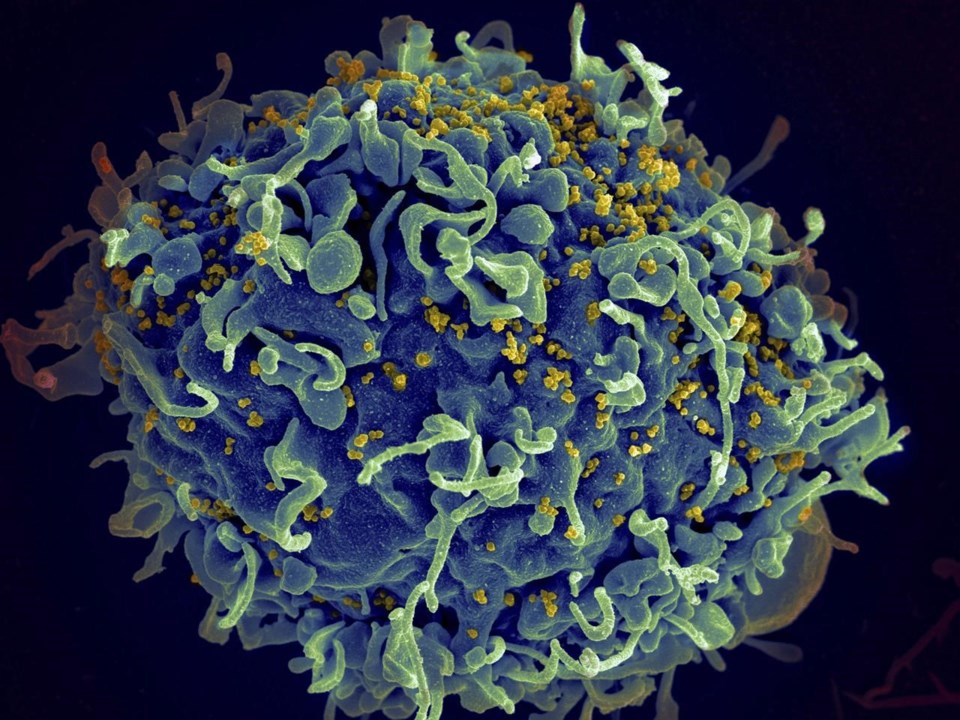Three women were diagnosed with HIV after getting “vampire facial” procedures at an unlicensed New Mexico medical spa, the Centers for Disease Control and Prevention said in a report last week, marking the first documented cases of people contracting the virus through cosmetic services using needles.
Federal health officials said in a new report that an investigation from 2018 through 2023 into the clinic in Albuquerque, VIP Spa, found it apparently reused disposable equipment intended for one-time use, transmitting HIV to clients through its services via contaminated blood.
WHAT IS A VAMPI
RE FACIAL? IS IT SAFE?
Vampire facials, formally known as platelet-rich plasma microneedling facials, are cosmetic procedures intended to rejuvenate one’s skin, making it more youthful-looking and reducing acne scars and wrinkles, according to the American Academy of Dermatology.
After a client's blood is drawn, a machine separates the blood into platelets and cells.
The plasma is then injected into the client's face, either through single-use disposable or multiuse sterile needles.
Vampire facials have gained popularity in recent years as celebrities such as Kim Kardashian have publicized receiving the procedure.
HIV transmission via unsterile injection is a known risk of beauty treatments and other services, officials say.
Despite this, the Academy says vampire facials are generally safe.
Health officials say spa facilities that offer cosmetic injection services should practice proper infection control and maintain client records to help prevent the transmission of bloodborne pathogens such as HIV.
IS THIS PROCESS USED IN OTHER PROCEDURES?
Platelet-rich plasma injections were initially most used medically for bone grafting and osteoarthritis, and then became popular in cosmetic treatments.
Other services, such as Botox and lip fillers, are also delivered with needles, as are tattoos.
Though this procedure works for hair growth, its use for rejuvenation purposes is not Food and Drug Administration-approved, said Zakia Rahman, a clinical professor of dermatology at Stanford University.
But as such procedures grow in popularity, she said, it is "important for people to know and understand a medical procedure should be done in a medical setting."
HOW WERE THE HIV CASES LINKED TO THE SPA?
The New Mexico Department of Health was notified during summer 2018 that a woman with no known HIV risk factors was diagnosed with an HIV infection after receiving the spa's vampire facial services that spring.
During the investigation, similar HIV strains were found among three women, all former clients of the spa. Evidence suggested that contamination from services at the spa resulted in the positive HIV infection tests for these three patients, according to the CDC report.
Another woman, who also received services at the spa, and her male sexual partner, who did not go to the spa, were both found to have a close HIV strain as well, but the HIV diagnoses for these two patients “were likely attributed to exposures before receipt of cosmetic injection services," the CDC said.
Health officials found equipment containing blood on a kitchen counter, unlabeled tubes of blood and injectables in the refrigerator alongside food and unwrapped syringes not properly disposed of. The CDC report said that a steam sterilizer, known as an autoclave — which is necessary for cleaning equipment that is reused — was not found at the spa.
ARE ANY OTHER PATIENTS AT R
ISK?
Through the New Mexico Department of Health's investigation, nearly 200 former clients of the spa, and their sexual partners, were tested for HIV, and no additional infections were found.
According to the CDC, free testing remains available for those who previously frequented the spa.
“Having a medical procedure in a nonmedical setting, I think is the biggest danger of all,” Rahman said. “Having that discount or the lower cost is not worth potentially putting your life at risk."
"There are a number of procedures and processes in place to make sure that these treatments are done safely and in medical settings," she said. “All of these things are in place to really reduce that risk, and when done safely, the risks are extraordinarily low."
WHAT HAPPENED TO THE SPA OWNER?
The former owner of VIP Spa, Maria de Lourdes Ramos de Ruiz, pleaded guilty in 2022 to five felony counts of practicing medicine without a license, including conducting the unlicensed vampire facials.
The New Mexico Attorney General's office said Ramos de Ruiz also did illegal plasma and Botox-injection procedures.
According to prosecutors, inspections by state health and regulation and licensing departments found the code violations, and the spa closed in fall 2018 after the investigation was launched.
Ramos de Ruiz was sentenced to 7 1/2 years, with four years being suspended on supervised probation, 3 1/2 years time in prison and parole, according to court documents.
Raul A. Lopez, attorney for Ramos de Ruiz, did not immediately respond to requests for comment.
___
Alexa St. John is an Associated Press climate solutions reporter. Follow her on X, formerly Twitter, @alexa_stjohn. Reach her at [email protected].
Alexa St. John, The Associated Press




